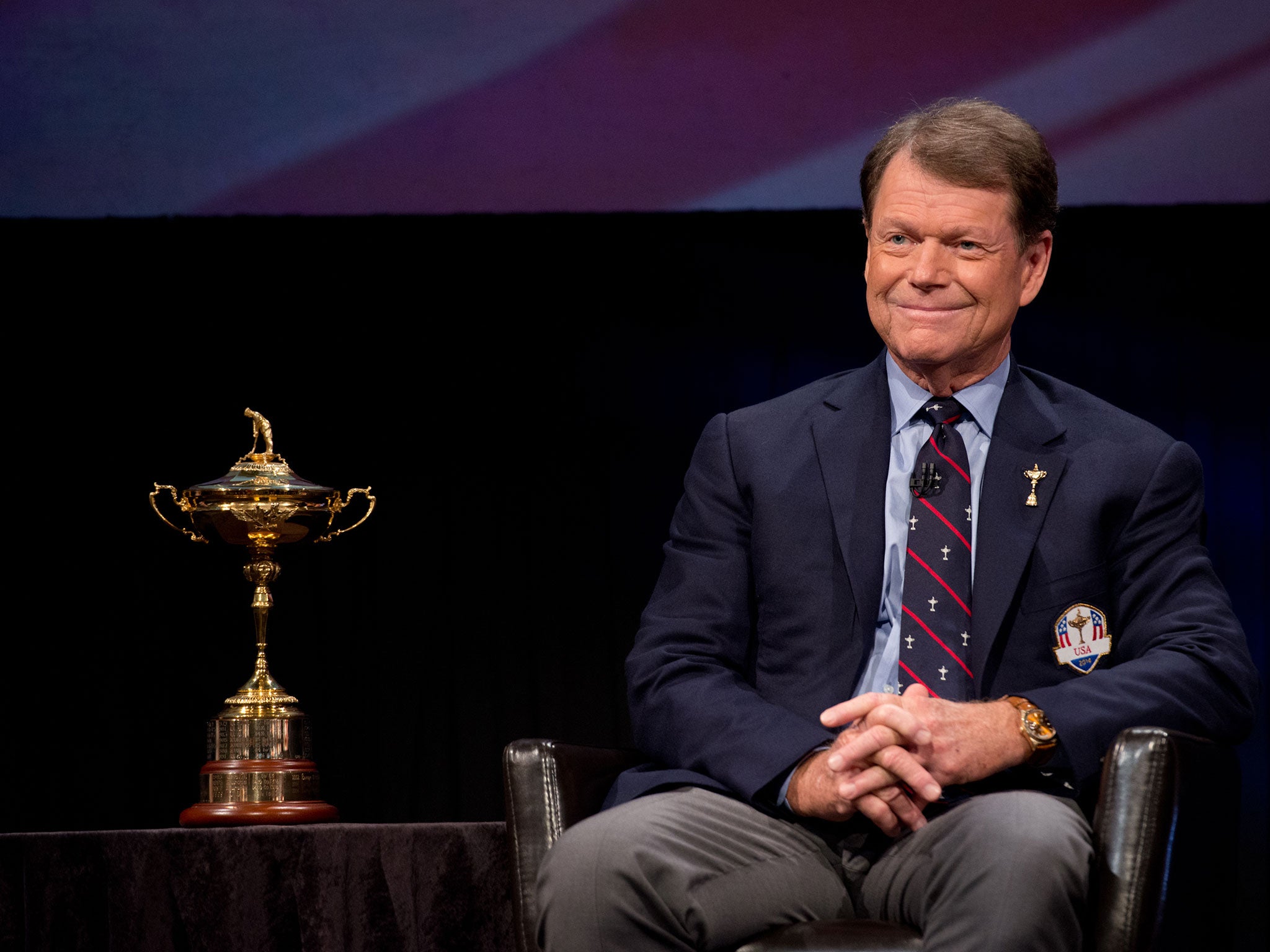Ryder Cup 2014: Tom Watson ready to do 'everything possible' to guide USA to revenge win for Medinah defeat
Watson believes the players will be fired up from the memory of defeat two years ago

He turned 65 a few days ago and is old enough to be the grandfather of three of his team members, but anyone expecting Tom Watson to be a soft touch as Ryder Cup captain will be in for a rude awakening.
"My strengths are that I've been there before (in 1993) and have the experience. And I have an absolute desire to do everything possible to set the stage for them to win," Watson said.
"Weaknesses? I don't know. Maybe compassion. I have passion, but maybe compassion is something (I lack). I expect these players to go out and take care of business. I fully think that the reason they'll want to win is because we lost the 2012 Ryder Cup."
Perhaps in those two answers in a Golf.com interview earlier this year, Watson made it clear just why the PGA of America turned to him in December 2012, less than three months after being on the wrong end of the 'Miracle at Medinah.'
A seventh defeat in the last nine contests prompted a radical rethink in terms of the US captaincy, which had tended to be given to players between 40 and 50 years old who were still active on the PGA Tour - Davis Love, Corey Pavin and Paul Azinger being the last three.
Watson did not fulfil either of those criteria and will in fact be the oldest captain on either side, surpassing the record of fellow five-time Open champion JH Taylor, who was 62 when he guided Great Britain to victory in 1933.
But what he did bring to the cause was experience of three victories as a player and, more importantly, the experience of captaining the US to their last victory on European soil at the Belfry in 1993.
Questions were inevitably raised about Watson's age and whether he would be out of touch with the likes of Jordan Spieth (21), Patrick Reed (24) and Rickie Fowler (25).
However, Watson had proved himself capable of competing against, and beating, the current generation on more than one occasion, and it was the most famous of those which had set the wheels in motion.
Watson's performance in coming within a shot of winning a sixth Open title at the age of 59 at Turnberry in 2009 inspired Jim Huber's book, Four Days in July, a book PGA of America president Ted Bishop read in full on a flight home from the Grand Slam of Golf in 2011.
A couple of days later Bishop called Huber wanting to know more about Watson.
"He's a tough guy," Huber said.
"He can be complicated and opinionated. He has beaten the drinking thing and he survived a tough divorce. But Tom is in a good place. Why do you ask?"
Bishop told Huber he was thinking of asking Watson to be Ryder Cup captain in 2014. After a brief pause came Huber's reply: "Brilliant."
Watson was hunting pheasant when Bishop first telephoned and asked him to call back later that day. When he did, Watson initially could not remember Bishop's name but the two men talked for 45 minutes, Watson outlining why he felt Europe had dominated recent contests.
Eventually Bishop asked if Watson had any interest in becoming Ryder Cup captain again.
"I was waiting for about 20 years to get the call," said Watson, who had clearly been paying attention to the recent results.
He cited fatigue after the Tour Championship, unfamiliarity with European Ryder Cup venues and simply being outplayed as the reasons behind those defeats.
Playing all four FedEx Cup play-off events in succession to ensure a week off before Gleneagles solved one problem, while a team-bonding trip to Gleneagles the week before the Open Championship was meant to solve the other.
In the end, only Jim Furyk and Keegan Bradley turned up, something which Watson said in public he understood but may not go down well in private with a man who felt the defeat at Medinah was down to complacency due to a 10-6 lead heading into the singles.
Whether Watson, who is fond of likening his role to that of a stage manager setting the scene for his players to perform, can do anything about his team being outplayed remains to be seen, especially with the likes of Rory McIlroy, Martin Kaymer, Henrik Stenson, Sergio Garcia and Justin Rose in opposition.
Then again, maybe he has supreme confidence in getting the job done largely on his own. During the 1993 Ryder Cup, Watson did not make a habit of consulting vice-captains or other players, according to 2008 captain Azinger, who played in the 15-13 win.
"He kept saying, 'We are going to win because I'm lucky,"' Azinger recalled. Paul McGinley will be hoping he has the luck of the Irish on his side just in case.
PA
Join our commenting forum
Join thought-provoking conversations, follow other Independent readers and see their replies
Comments